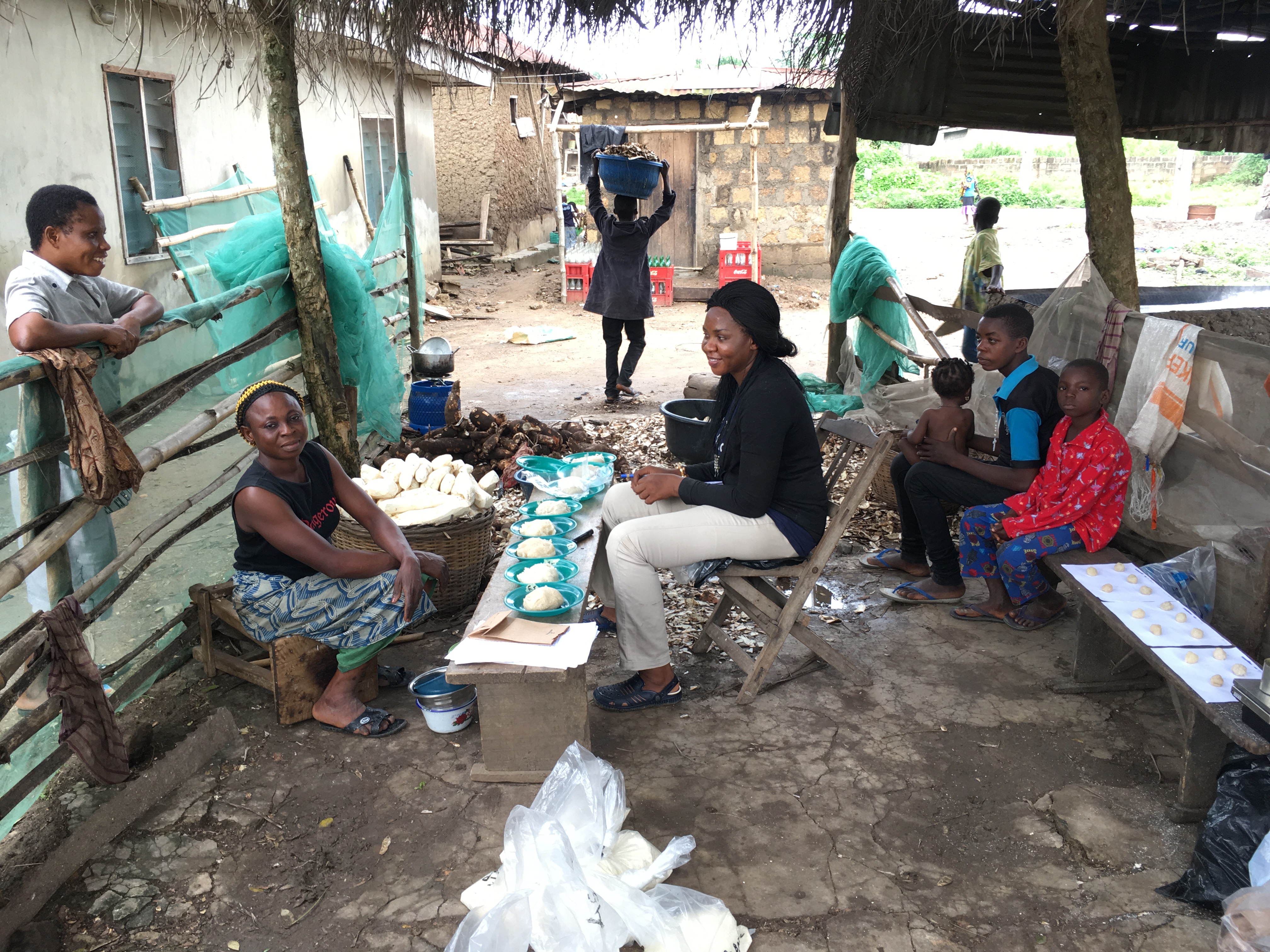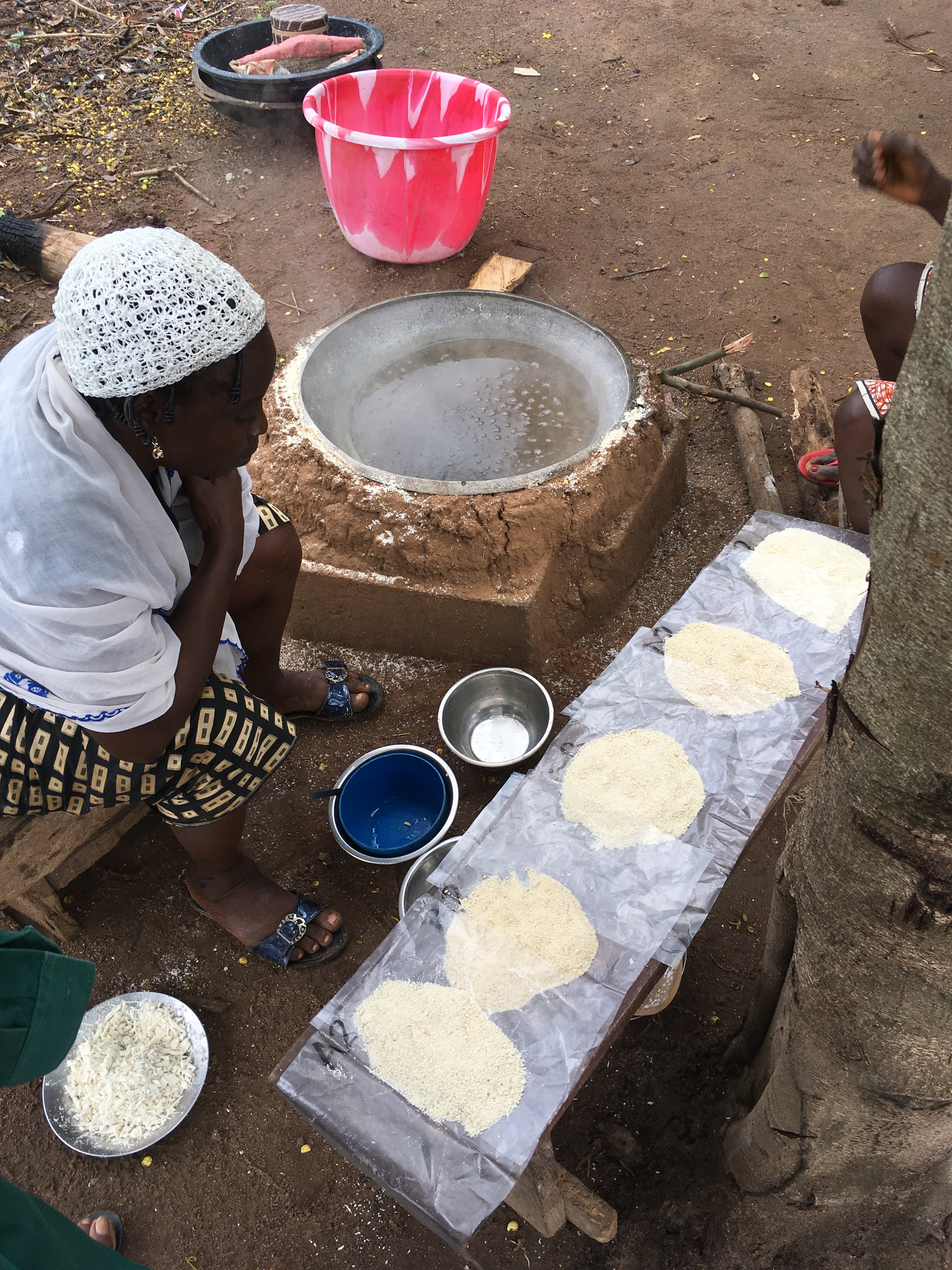By: Béla Teeken
Phase 2 of NextGen Cassava established the Survey Division, under Hale Ann Tufan. This division’s role is to ensure the acceptability of varieties developed by the NextGen Cassava project to the end users: the farmers, processors, and consumers that use them. As part of the work being done at the International Institute of Tropical Agriculture (IITA) in Nigeria, we incorporate Survey Division activities into the breeding program.

Bela Teekin (center back row) with the NRCRI and IITA team in a farmer-processor’s baby trial in Imo state, Nigeria. Photo by Ernest Chukwudi.
To engage small scale farmers and processors, who are responsible for the largest cassava food product production in Nigeria, IITA and the National Root Crops Research Institute (NRCRI) have held mother/baby participatory variety trials. Stakeholder feedback was determined by evaluating 2 ‘mother trials’ and a total of 40 ‘baby trials’ in the individual fields of farmers who are experienced cassava processors. Evaluation was done from planting up to the processing of the clones into food products by the farmer processors. As processing is done mainly by women, we evaluated a mix of commonly grown varieties, IITA established improved varieties, and NextGen cassava clones.
These trials revealed important quality criteria held by these smallholder users, like canopy soil coverage, food product color, and cohesiveness. Furthermore, it showed that preferred varieties came from all three groups of varieties including NextGen clones.

Evaluation of eba, a Nigerian staple made of grated cassava flour, from 5 clones harvested from a baby trial in a farmer-processors field (the women sitting in the left) in Osun state, Nigeria. Photo by Béla Teeken.
IITA is now scaling up this approach using smaller fields per farmer, to work through an on-farm triadic comparisons of technologies (TRICOT) approach and work with a total of around 300 farmers in four states. The farmers will be carefully selected using an expertise-based task group approach to represent different socio-cultural and economic groups and gender. Each farmer will comparatively evaluate three varieties from planting to the production of food products, indicating what they perceive to be the best and worst variety. This will provide important feedback from more regions and will importantly tap into the tacit knowledge of farmers as they will physically compare varieties in the field.

Pairwise comparison of gari by a farmer-processor to determine desired characteristics. Photo by Béla Teeken.
As a future activity, we have planned a so called 1000 minds study, in which around 1000 farmers representing local social groups in 8 states will be asked to pairwise rank important cassava aspects. The aspects to be pairwise ranked are obtained from earlier surveys including those carried out under the RTB foods project that is in many ways complementary to the NextGen Cassava project.






